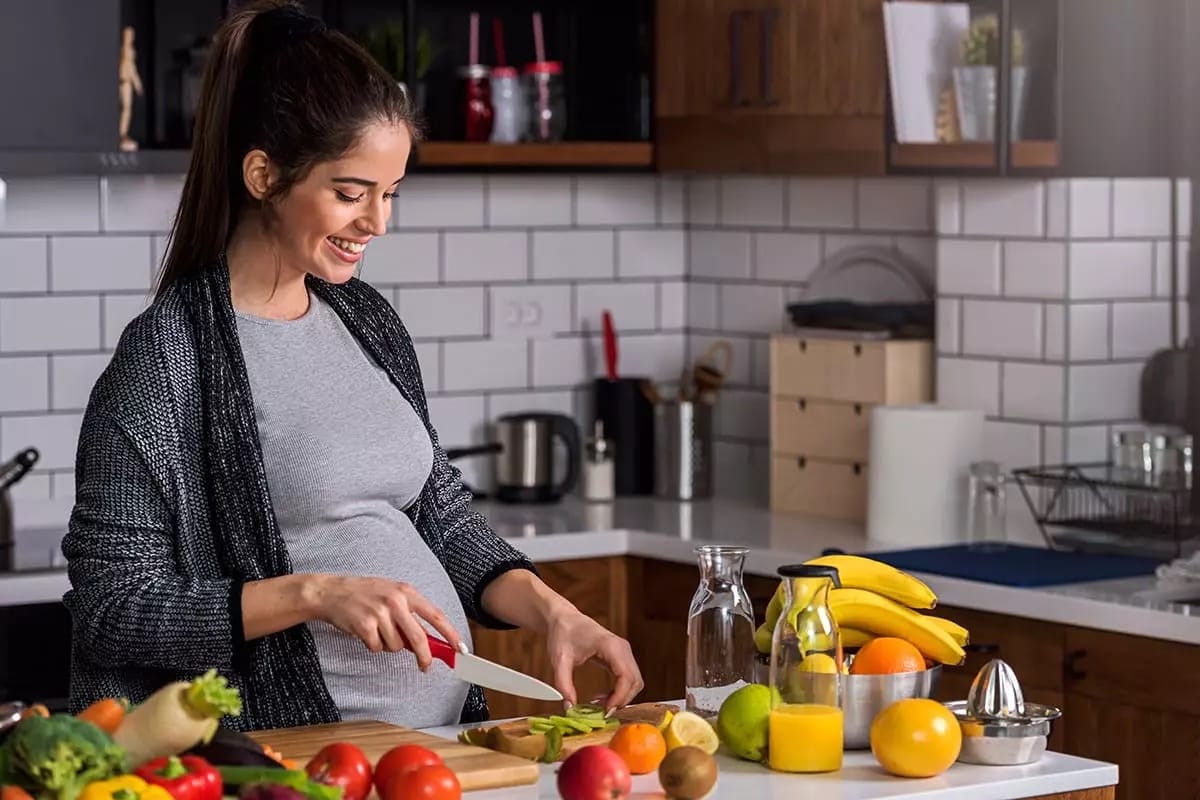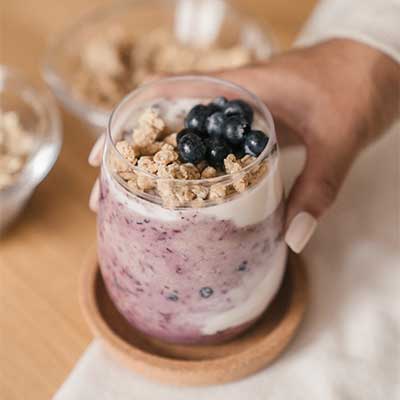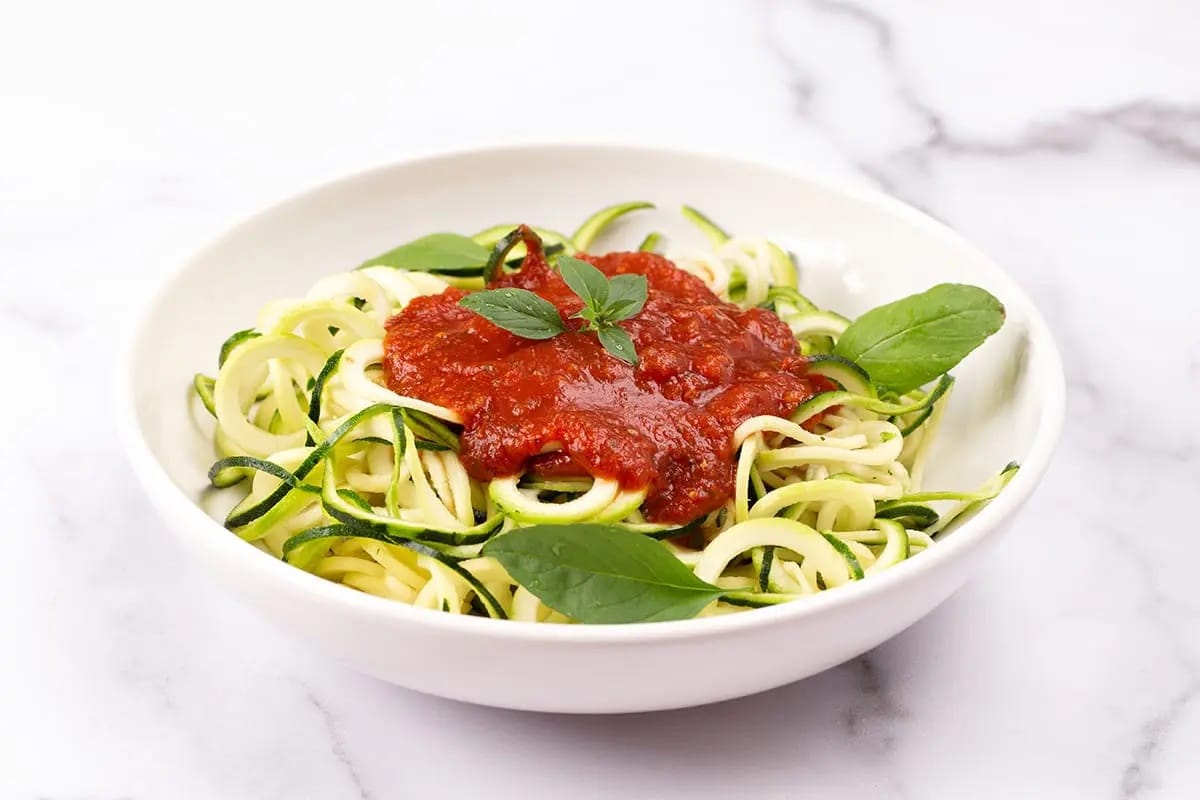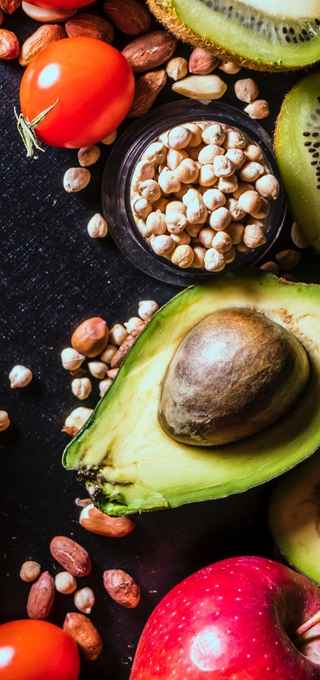Last Updated on March 28, 2025
Healthy pregnancy snacks and meals are essential for the proper growth and development of a baby. In fact, the nutrition that a baby receives while it is in the womb can have a positive influence on how they develop, grow and learn for their entire life!
However, when a woman is pregnant, there are a lot of do’s and don’ts, and these can get confusing and overwhelming at times. Both sides of this list can be pretty exhaustive, but exhaustion is the last thing a pregnant mother needs. Therefore, here is a simplified guide on what to eat and what not to eat during pregnancy:
Healthy pregnancy snacks and foods
During pregnancy, your need for certain nutrients increases. These include:
- Protein
- Iron
- Iodine
- Folate
- Other vitamins and minerals
To meet this increased need for nutrients (for both a mother and her child), a pregnant woman’s daily diet should include a mix of the following:
- Vegetables and legumes (lentils, beans and peas)
- Breads and cereals – preferably wholegrain, high fibre/fiber
- Dairy or dairy alternatives
- Fish, legumes, eggs, tofu, meat, poultry, nuts and seeds
- Fruit
Not sure which foods to eat for extra nutrients? Download our free nutritional cheat sheet on foods high in vitamins and minerals.
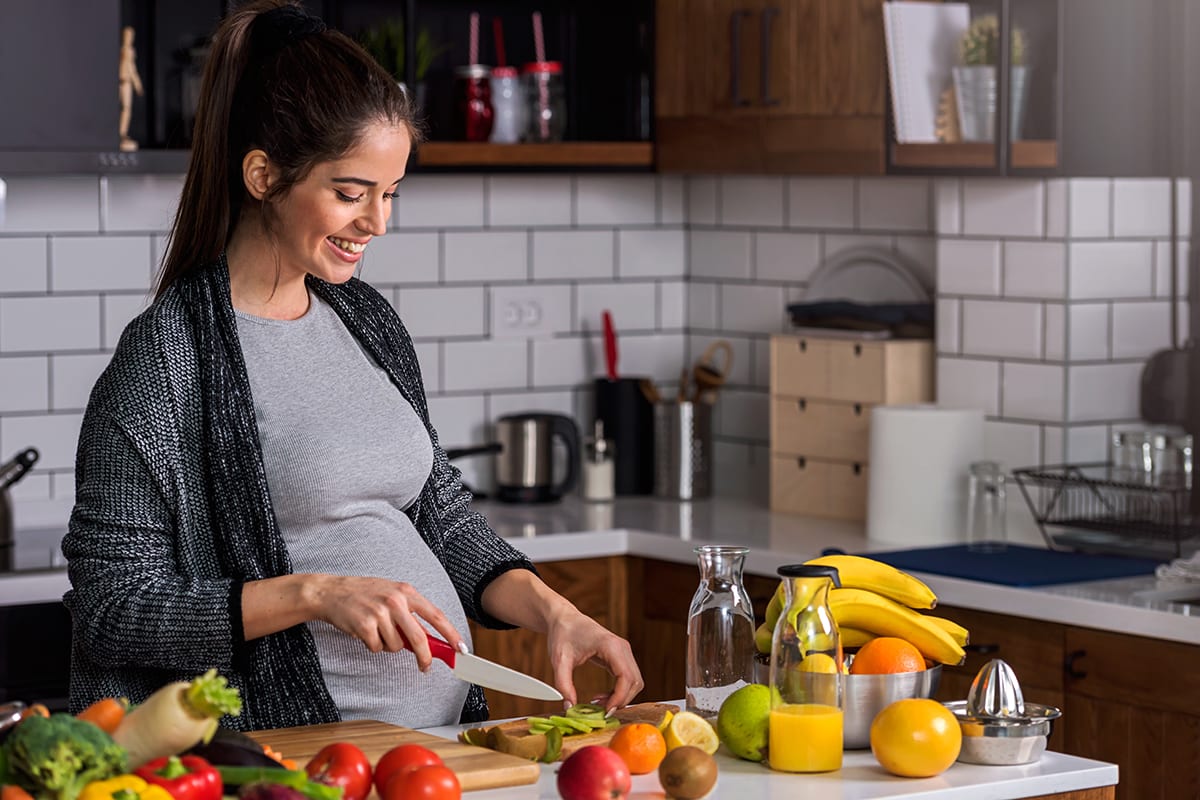
If a pregnant mother maintains a healthy and balanced diet before pregnancy, she may not need to change too much in terms of diet (other than eating a wider variety of food, especially from the groups mentioned above, and increasing the amounts as the child grows). However, if a mother-to-be has not maintained a healthy diet prior to pregnancy, this would especially be the time to focus on eating healthy.
A healthy pregnancy diet should include a variety of choices from the food groups mentioned above. However, it can also include some healthy pregnancy snacks like the ones found here. With that said, pregnancy is not a time to try fad diets or crash diets, so you should only adjust your diet within reason.
Drinking water is also essential during pregnancy; it helps by absorbing and transporting essential nutrients to a baby. Drinking enough water can also help prevent urinary tract infections, constipation, hemorrhoids, fatigue, headaches, swelling, overheating, heartburn and nausea.
Water requirements usually increase during pregnancy and will differ for each mother-to-be. As a rough guide, however, a pregnant mother should aim for at least 8-10 cups per day. To help meet this requirement, we’ve provided some additional suggestions:
- Try sipping on water throughout the day and even the night.
- Consider carrying a bottle around or leaving fresh cups of water around the house.
- Track water intake over a few days if unsure of your water consumption.
Managing morning sickness during pregnancy
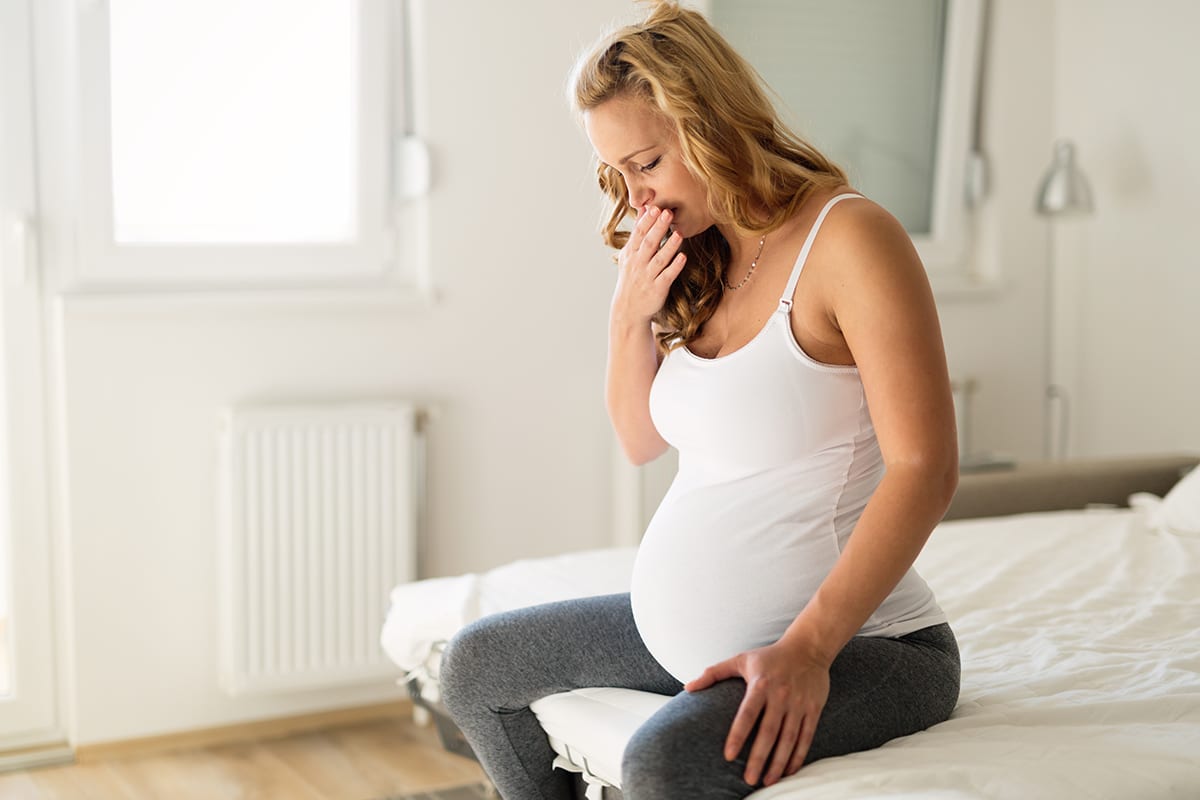
If a pregnant woman is suffering with morning sickness or food aversions during the first trimester (or longer), it may be difficult for her to eat a wide variety of healthy foods. This isn’t something to stress about; she should just aim to do her best. This includes trying to eat smaller amounts of food more frequently, taking advantage of the times she feels well enough to eat and choosing nourishing foods, especially those rich in protein. An obstetrician may also encourage taking pregnancy supplements if necessary.
The following strategies can also help manage morning sickness:
- Snacking on plain dry foods – the longer you go without food, the worse the nausea can get, so regularly snacking or grazing on plain dry foods may help symptoms subside
- Ginger – including ginger in your meals may help with nausea
- Lemon – a squeeze of lemon on your food, lemon tea or even the smell of fresh lemon may reduce your morning sickness symptoms
- Sipping slowly on water
- Avoiding cooking smells / the kitchen when possible
- Certain motions may make symptoms worse (inducing what is known as motion sickness) – e.g. lying down, scrolling on a phone, using a phone or looking down in the car while driving
- Getting fresh air – try going for a short walk and slowly moving your body
- Asking your obstetrician about morning sickness tablets
Managing heartburn during pregnancy

When acids from your stomach leak out and move up your esophagus, known as acid reflux, it can cause a burning sensation called heartburn in your upper abdomen, esophagus or throat. Reflux and heartburn can be common during pregnancy, especially as the baby grows. To help manage heartburn, try the following:
- Avoiding large meals
- Avoiding your trigger foods: certain foods – namely fatty foods, spicy foods, carbonated drinks and those containing caffeine – trigger heartburn and acid reflux in certain people
- Eating slowly and chewing food well
- Avoiding lying down after eating
Not suggested or healthy foods and snacks
While it’s important to eat a broadly healthy and balanced diet during pregnancy, a pregnant mother should especially avoid certain foods. When a woman is pregnant, her immune system weakens, meaning a higher risk of developing foodborne illnesses, including listeria, campylobacter and salmonella. All are dangerous for a baby’s health. Mothers must be cautious about their food choices to keep their babies safe.

The following is a list of foods that stray away from healthy pregnancy snacks or meal choices. Note that it is ultimately a matter of personal choice in deciding what to eat (or not eat) during pregnancy; these are simply recommendations:
- Alcohol – there is no safe level of alcohol during pregnancy, so it is recommended to avoid all alcohol when pregnant
- Processed meats – cold deli meats & packaged/ready-to-eat meats like ham, salami, luncheon meat, chicken, etc. (note that some meats like ham can be consumed if cooked and eaten hot, but this is not recommended for daily consumption)
- Raw or undercooked meat
- Soft cheeses – unless cooked over 75° C (over 165° F) & eaten straight away
- Pâté, meat spreads or smoked seafood (e.g. smoked salmon)
- Raw or undercooked eggs – including raw egg in foods like mayonnaise, aioli, chocolate mousse, cake batter, pancake batter, etc.
- Chilled or raw seafood (e.g. raw oysters, sashimi, sushi, cooked or chilled prawns/shrimp or smoked salmon) – note that this recommendation does differ across numerous countries, and some recommend the consumption of safely prepared raw fish
- Pre-made sushi & sashimi
- Unpasteurized milk products & juices
- Pre-prepared & pre-packaged fruits, fruit salads and vegetables salads (including buffets, salad bars and sandwich bars)
- Raw sprouts – alfalfa sprouts, broccoli sprouts, onion sprouts, sunflower sprouts, clover sprouts, radish sprouts, snow pea sprouts, mung beans or soybean sprouts, etc. (these may contain bacteria like listeria that enter into the sprout seeds through the cracks and contaminate them)
Limited Exceptions
While it isn’t necessary to completely exclude the next list of foods, it is recommended that intake of the following be limited:

- Caffeine, which is found in coffee, tea, energy drinks, soft-drinks and cocoa, should be limited to 300 mg a day.
- Fish high in mercury, including shark/flake, broadbill, marlin, swordfish, orange roughy (sea perch) and catfish, all carry certain restrictions or recommendations: shark (flake), broadbill, marlin and swordfish should only be eaten once per fortnight with no other fish during that fortnight; orange roughy (sea perch) and catfish should be eaten no more than once per week with no other fish that week and any other fish not mentioned above may be eaten no more than two to three servings per week
- Any foods high in saturated fats, added salt and added sugars – this includes many takeaway foods, deep-fried foods and processed snack foods
Pregnancy, although beautiful and exciting, often embodies an anxiety-filled time: the most important thing for a pregnant woman is to try her best. There is no one perfect way to eat for pregnancy; it is advised to eat a nourishing, balanced diet full of healthy pregnancy snacks and foods.
This supports the growth of a gorgeous and healthy baby. And finally, remember that the above is to be used as a guide only. Always check with your obstetrician, dietitian or GP/primary care physician.
12 Top Keto Drink Recipes
Try our new keto drinks…
Beginner’s Guide to Easy Keto Meal Prep (Recipes Included)
The ketogenic diet (or keto…
5 Easy Keto Recipes for Every Meal of the Day
As a registered dietitian, I…
- Low Carb 30 Minute Recipes to Help You Keep a Balanced Diet in a Busy Day
- 8 Really Easy Recipes to Start Following a Plant-Based Diet
- Rebecca Gawthorne
- Rebecca Gawthorne

